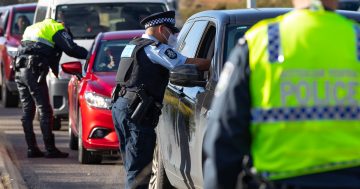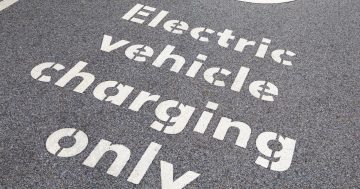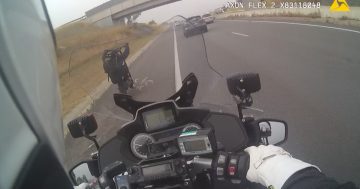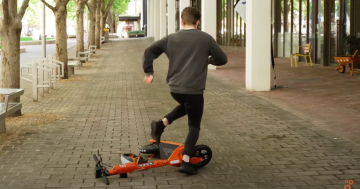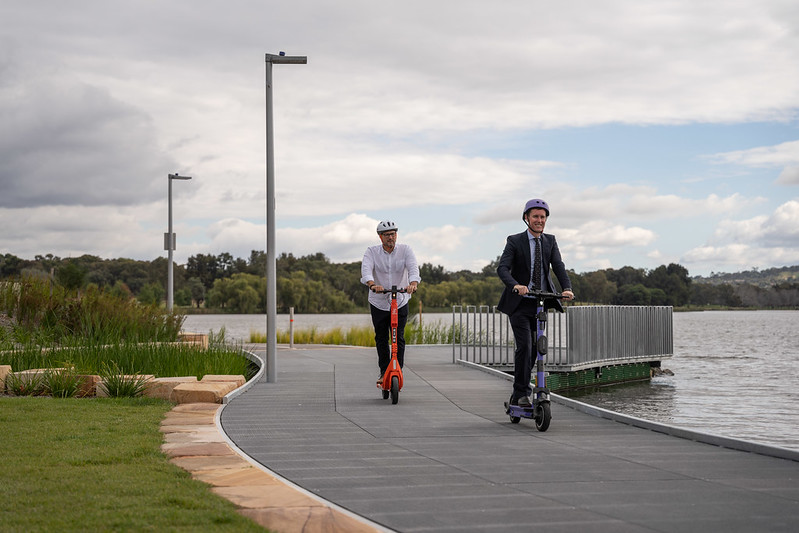
Transport Minister Chris Steel is encouraging low-emission and active travel, including e-scooters. Photo: ACT Government.
Getting on an e-scooter to get home after a big night out in Civic could now prove a costly option after new legislation passed yesterday (5 April) in the ACT Legislative Assembly.
People caught riding an e-scooter or bike under the influence of alcohol or drugs can now be slapped with a maximum court-imposed fine of $3200.
While it was already illegal to ride a bike or e-scooter on roads while under the influence of alcohol or drugs, there wasn’t a specific penalty for anyone on a road-related area like a bike path, verge or pavement. That’s no longer the case.
Minister for Transport and City Services Chris Steel said the new laws addressed a gap in the Territory’s existing drug and alcohol legislation.
“As new forms of transport like e-scooters grow in popularity, we want to ensure everyone uses them safely,” he said.

Minister for Transport and City Services said the new legislation sends a clear message to Canberrans that it’s not okay to jump on an e-scooter after a big night on the town. Photo: Michelle Kroll.
Mr Steel said it was important to send a message to the community that riding an e-scooter or bike home after a few drinks wasn’t acceptable and would be met with penalties.
He said the ACT Government would now carry out an education campaign to ensure Canberrans knew the new rules.
The amendments to the existing legislation come ahead of a proposed expansion of the e-scooter scheme later this year.
On Monday, the first phase of this expansion was announced and an additional 400 e-scooters were brought online to connect the existing zones of the city and Belconnen via shared paths over Bruce Ridge.
The Road Transport Legislation Amendment Bill No. 2 introduced a new offence for riding a personal mobility device, such as an e-scooter, on road-related areas while under the influence of alcohol or drugs to the extent of being incapable of having proper control.
The new offence carries a maximum court penalty of 20 units, but it will not carry any imprisonment term or come with automatic licence disqualification.
It followed previous legislation from the ACT Government that empowered police to direct a person to get off, or not get on, a personal mobility device if they are believed to be under the influence of alcohol or drugs.
The introduction of stricter drug and alcohol penalties was one of the major recommendations of the six-month review of the shared mobility scheme undertaken last year.
The review found that while Canberrans were generally supportive of the e-scooter scheme, many believed there needed to be stricter rules and regulatory framework in place.

Opposition spokesperson for transport and city services Mark Parton called the bill “common sense”. Photo: Region Media.
The bill passed the ACT Legislative Assembly with tripartisan support.
Opposition spokesperson for transport and city services Mark Parton described the amendments to the legislation as “common sense” that would serve to make the ACT’s roads safer.
“Road safety is one of those things that is much more important than politics and that sentiment continues,” Mr Parton said.
The bill also prohibits non-electric vehicles from parking in areas designated for electric vehicle charging.
This was welcomed by ACT Greens spokesperson for active travel Jo Clay.
“We know we need to move faster on getting closer to zero-emissions travel options. We need to make it practical and convenient for all Canberrans,” she said.












